Talanoa Ako (PowerUP)
evaluation and case studies
Context
Talanoa Ako (previously known as Pacific PowerUP) is an education programme for Pacific parents. Since 2013, it has helped Pacific parents and communities build their educational knowledge to support their children’s learning. The PowerUP model of engagement is strengths-based. It encourages parents, families and communities to take ownership of the programme. On a continuum of engagement, the programme operates in a “Done as Pacific” space. A “Done as Pacific” space is where:
[Pacific] people lead and are in control and [Pacific] values, principles, approaches and methods prevail. It does not exclude other… methods but only as far as they are seen to be useful. (Wehipeihana, 2013).
The team from the Ministry of Education’s Parent Information and Community Intelligence (PICI), are committed to learning and continuous improvement of the programme. Moe Sau and Gabby Makisi developed and refined a research method Guided Talanoa Series to collect parent, family, learner, and community voice on the value of attending a PowerStation and later Ako centres.
From 2016 to 2019, PowerUP families shared their stories through the Guided Talanoa Series. These stories provided a rich description of the changes that occurred for families when they attended PowerUP. PowerUP partners and teams from the 20 PowerStations/ Ako Centres in 2016 to 70 in 2019, supported this process.
The Ministry of Education commissioned Pragmatica Limited to work alongside them, collating and synthesising data and running sensemaking sessions each year from 2016 to 2019. This work was supported by Shelley Kennedy and Kellie Spee from Kellie Spee Consultancy.
Fa‘afetai lava to the PowerUP and later Talanoa Ako families who shared their stories in the Guided Talanoa Series 2016 to 2019, and the PowerUP partners and teams who supported this process. Without your participation this work would not have been possible. Fa’afetai to the Ministry of Education’s Parent Information and Community Intelligence team. It has been exciting to work with you on this journey. Thank you for allowing us to share this significant body of work on the Pragmatica’s website.
An independent Synthesis Report of Pacific PowerUP evaluations 2016-2019 has recently been released and can be found here.. This is part of the Talanoa Ako Guided Resources.
In addition, a review of the Pacific PowerUP to Talanoa Ako case studies can be found here.
Evaluations
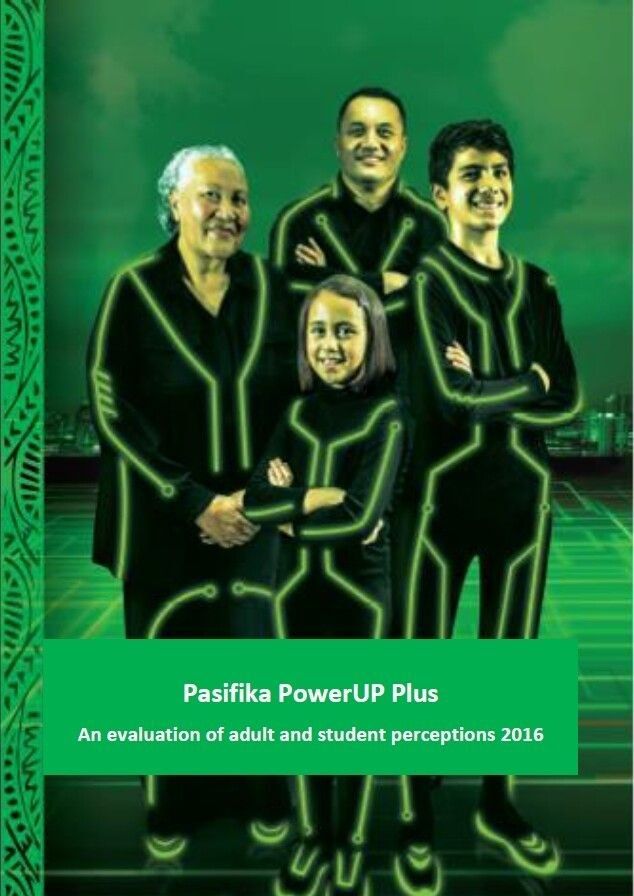
PowerUP Evaluation 2016
The first evaluation of PowerUP followed an initial research project in 2015. The evaluation found that the PowerUP programme is very effective at realising key outcomes for those Pacific parents, families and members of the communities, primary and secondary school learners and children in ECE who attend. A particular strength was it provided a culturally safe ‘As and By’ Pacific space for learning.
Oakden, J. (2017). Pasifika PowerUP Plus: An Evaluation of Adult and Student Perceptions. Wellington: Pragmatica Limited.
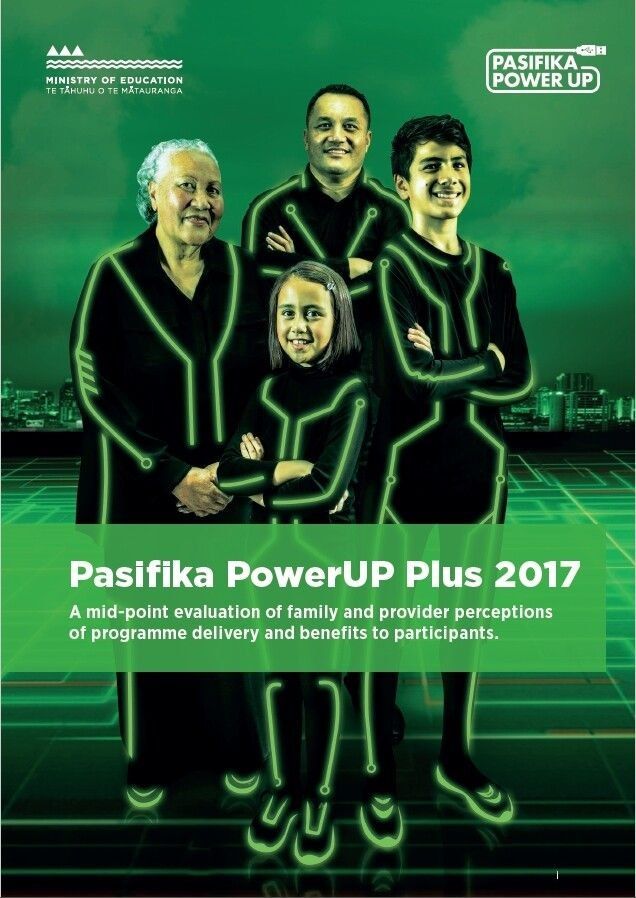
PowerUP Evaluation 2017
A mid-point evaluation of family and provider perceptions of programme delivery and benefits to participants. In this report the evaluators noted “PowerUP has the potential to bring about a positive intergenerational change in the way Pacific communities engage with the education system and schools”.
Oakden, J. (2018). PacificPowerUP Plus 2017: A Mid-point Evaluation of Stakeholder Perceptions of the Programme Delivery and Benefits to Participants. Wellington: Ministry of Education.
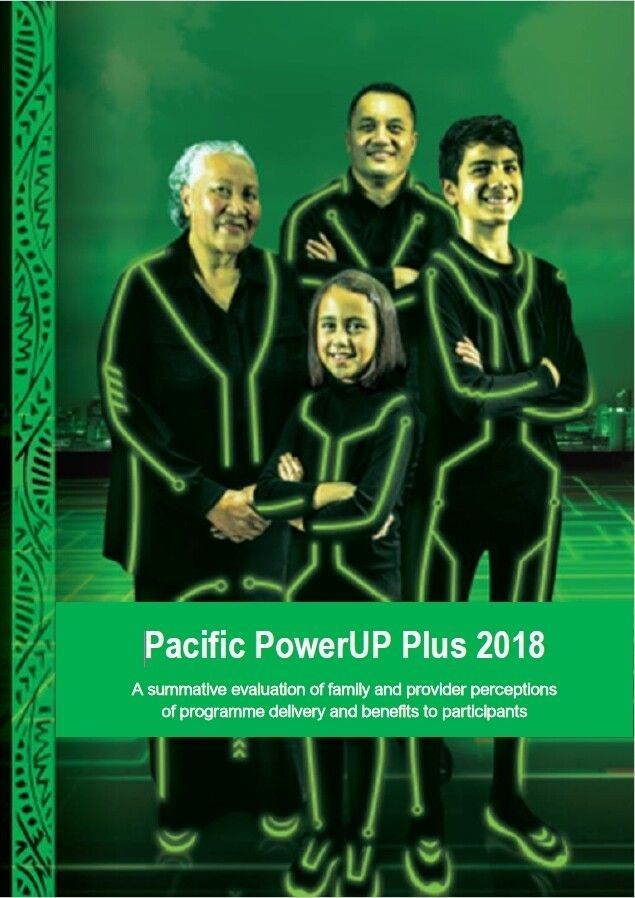
PowerUP Evaluation 2018
A summative evaluation of family and provider perceptions of programme delivery and benefits to participants. This evaluation found PowerUP encourages important and lasting changes in parents’ and children’s attitudes and behaviours towards education and learning. This evaluation identified the need to try different delivery approaches to focus on and support better parent attendance.
Oakden, J. (2019). Pacific PowerUP Plus 2018: A Summative Evaluation of Stakeholder Perceptions of the Programme Delivery and Benefits to Participants. Wellington: Ministry of Education.
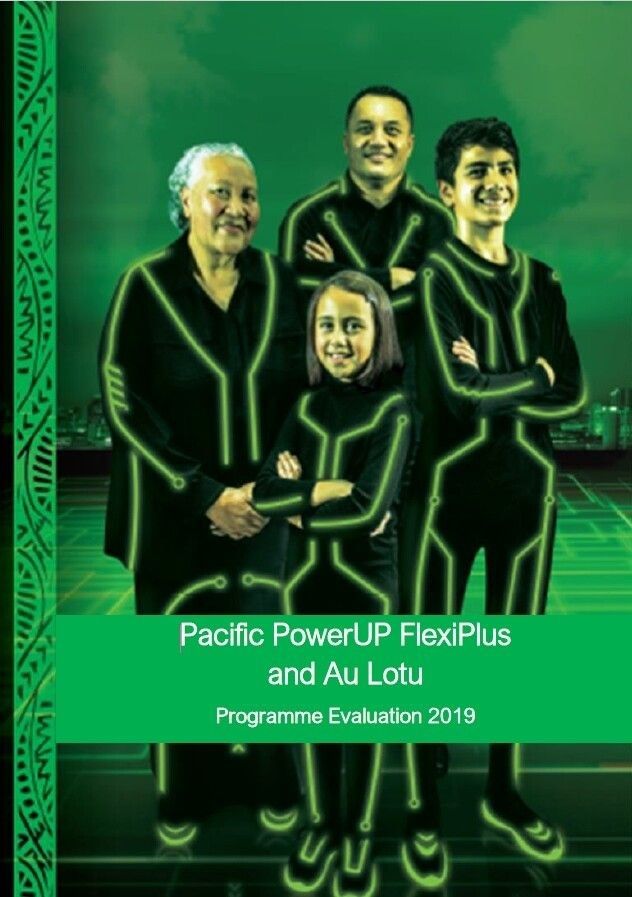
PowerUP Evaluation 2019
In 2019 new alternative models of service provision, FlexiPlus (pan-Pacific) and Au Lotu (offered in church settings), and new materials were developed based on the evaluation findings 2016-2018. The Ministry also introduced more flexible contracting approaches, allowing PowerUP partners to offer the programme at the times of the year most useful to the community. The evaluation found that both the FlexiPlus and Au Lotu programmes tested better than the previous version of PowerUP.
Case studies
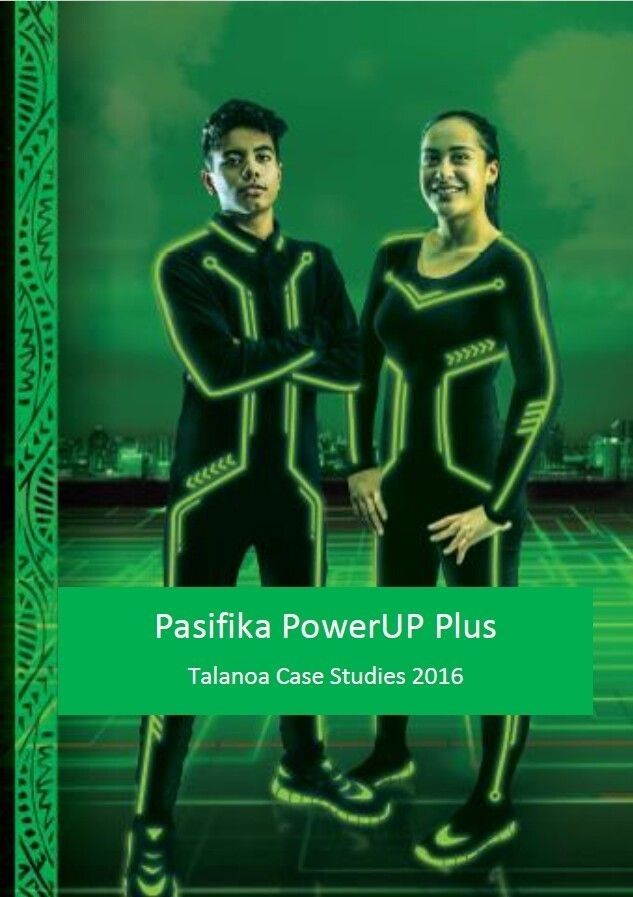
Oakden, J. and Kennedy, S. (2017). Pasifika PowerUP Plus: Talanoa Case Studies. Wellington: Ministry of Education.
PowerUP Case Studies 2016
The extent of change that occurred in a relatively short time for Pacific families participating in PowerUP was notable. These case studies illustrate the kind of changes that occurred.
Case One: Parenting a wide range of learning needs in a family
A mother describes how she learns strategies for keeping track of the educational needs of her large family to support them effectively. She describes the changes made to the family routine to support the children’s learning.
Case Two: Navigating the New Zealand education system as a family
A mother who is relatively new to the New Zealand education system and with English as a second language describes how useful it is to have the National Standards and NCEA systems explained to her. The case shows the ways she and her husband have used this new knowledge to support their children’s learning.
Case Three: Moving forward as a family
A mother describes how PowerUP supports the family face the day-to-day difficulties of life after the death of her husband, while also focussing strongly on the educational needs of their children.
Case Four: Supporting an NCEA student through better family communication
A father describes his own learning journey and the educational journey of his daughter. By listening deeply, he helps build her confidence on her NCEA journey.
Case Five: Supporting a child’s aspirations as a family
A mother attending PowerUP for a second year describes how she listens deeply to both daughters and supports them to make strategic decisions about subject choices. She helps one of her daughters negotiate with her school to ensure she meets her NCEA goals – in a way that demonstrates her nuanced understanding of the NCEA system.
Case Six: Engaging with PowerUP as a family
This case describes how a range of Pacific families are mobilised to attend PowerUP and the impact on family relationships of attending PowerUP. The case also describes the ways in which PowerUP being a safe space is important for learning for Pacific children, parents and families.
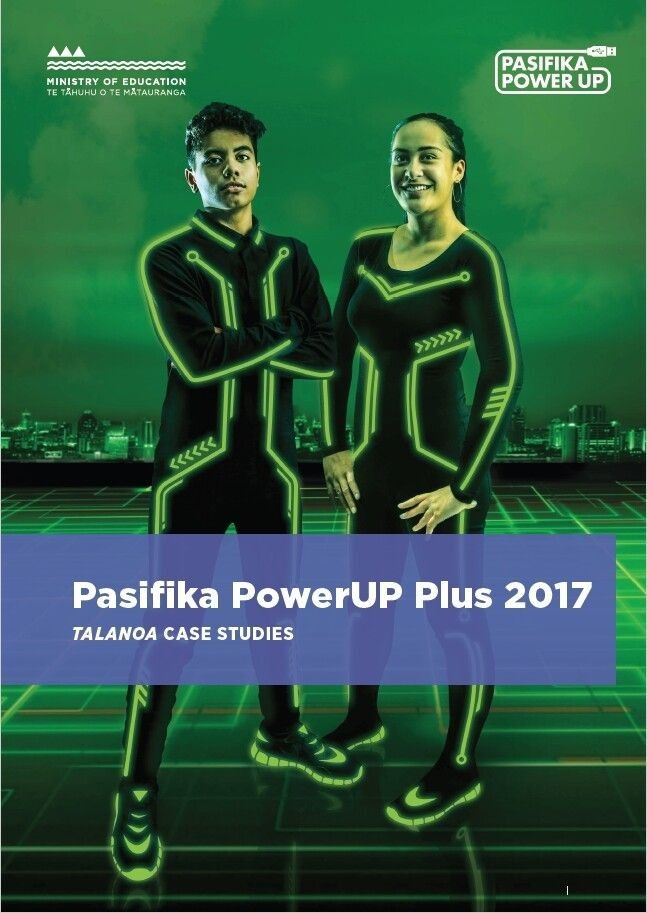
PowerUP Case studies 2017
Case One: Student voice - learners discuss the changes they experience in their learning, relating to others and planning for their future.
This case draws on comments from 12 families participating in PowerUP for a second year. In total it reflects feedback from 25 learners of a range of ages who took part in the Talanoa process alongside their families for the first time this year. It captures the changes that occurred when, supported by their parents, they took a more strategic, long-term view of their study. It also explores the impact of attending PowerUP on their relationships – both in the home, within the PowerStation and at school. It also captures learners’ observations of the importance of learning in a culturally affirming setting. An adapted version of Tuiatua Tupua Tamasese Fa’afaletui was used to frame this case study.
Case 2: Support of an NCEA student through better family communication. (Year 2 family)
A mother whose teenage daughter and primary school-aged son attended PowerUP for the second year described the transformation in her daughter. In 2016, the mother, was keen for her family to attend PowerUP because she was worried about her daughter struggling in her first year of NCEA. Her daughter was anxious, lacked confidence in her interactions with others and in her own ability to succeed at anything. She also felt that her mother didn’t care about her. She had no future goals in mind and was in real danger of dropping out of school. From a reluctant start, this learner began to enjoy her time at PowerUP, coming to realise she had qualities, abilities and skills which would enable her to succeed.
Case 3: Mother actively supports her children with educational activities and learning goals. (Year 3 family)
A family of ten participated in the PowerUP programme for the third year. The mother describes how her PowerUP experiences significantly changed her attitude to the role she plays in her children’s education. She now considers it very important to learn how to actively help and support her children with educational activities and learning goals. As well as the positive benefits of PowerUP for each of her children individually and for her family, she gained considerably in her own right.
Case 4: Using new knowledge about the education system to support the learning needs of the family. (Year 1 family)
A mother saw her three children needed urgent support to get on a more positive track with their learning at school. She quickly gained confidence from her interactions with PowerUP staff and other parents. She was proactive in putting into practice the information and strategies she learned to support her children’s learning. She also came up with innovative solutions of her own to address and overcome her family’s challenges.
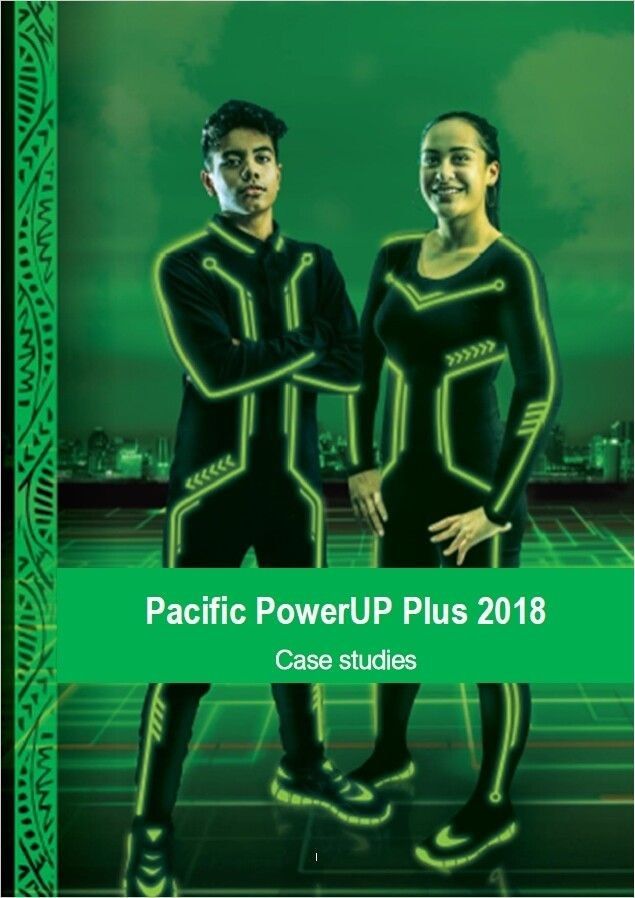
Oakden, J. and Kennedy, S. (2019) Pacific Power Up Plus 2018: Case Studies, Wellington. New Zealand: Ministry of Education.
PowerUP Case studies 2018
These cases show some of the ways PowerUP’s strong focus on parental and family learning is evident. The cases also show how the programme is useful to a range of families in various Pacific contexts. The final case explores the impact of unconscious bias and institutional racism as an obstacle to Pacific success.
Case One: Three years at PowerUP– a family’s story
This case study relates the PowerUP experiences of a family of three New Zealand-born people of Samoan descent who attended PowerUP for the three years of the longitudinal evaluation, from early 2016 to late 2018. It tracks their progress and shows how lasting changes occurred for the family.
Case Two: Pacific success
This case presents experiences from several families to explore the ways PowerUP helps Pacific parents, children and families to achieve Pacific success.
Case Three: Pacific wellbeing
This case presents experiences from several families to explore how PowerUP supports Pacific wellbeing for Pacific parents, children and families.
Case Four: How PowerUP helps parents, children and families succeed in settings where unconscious bias and institutional racism exists
This case presents experiences from several families. The case explores how PowerUP supports Pacific families to achieve in learning and be effective in settings where, unconscious bias and institutional racism exists. The case illustrates how unconscious bias and institutional racism can represent a significant obstacle to Pacific success.
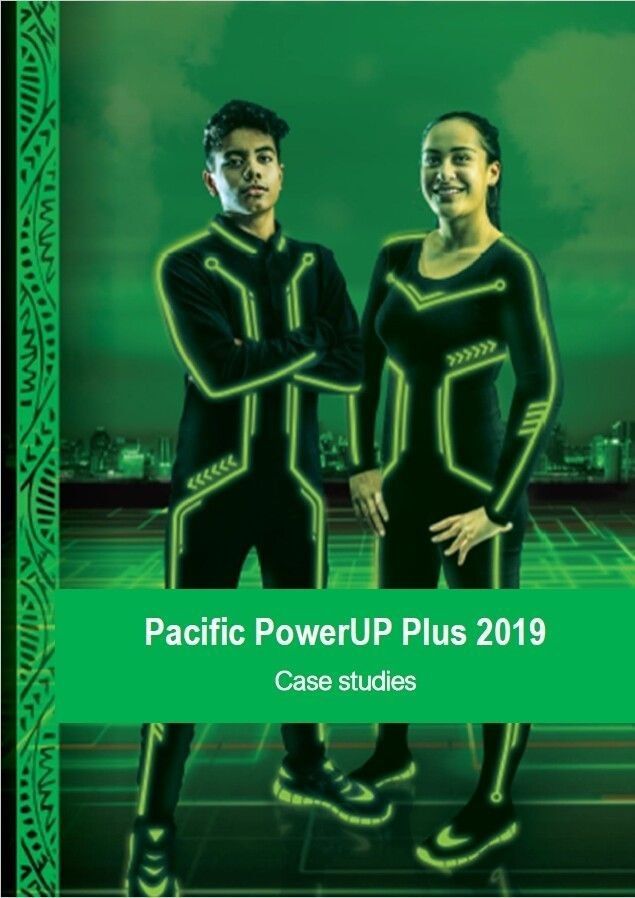
Oakden, J. (2020) Pacific PowerUP Plus 2019: Case Studies, Wellington. New Zealand: Ministry of Education.
PowerUP Case studies 2019
These cases show the ways that the Ministry of Education’s strong focus on developing PowerUP services with providers, using an “as Pacific” model, led to significant improvements. Changes in the way PowerUP partners delivered services and in the contracting terms and conditions enabled the programme to better serve Pacific parents, children and communities. These cases show it is possible to contract for services for Pacific communities in an authentic Pacific way.
Case One: From providers to partners – contracting “as Pacific”
This case study describes the journey the Ministry of Education and the Pacific community took together to develop the PowerUP programme. It explores how changes in beliefs, expectations and values about the best ways to offer the programme were strongly influenced by PowerUP partners and the Pacific parent, family and child voice from previous evaluations (Oakden, 2017, 2018, 2019). Over time, Pacific PowerUP partners and the Ministry developed trusted partnerships as they improved PowerUP delivery options.
Case Two: Pacific visible – the story of PowerUP in Oamaru
The Pacific community in Oamaru came together to seek improved educational outcomes for their children. They made requests to the Ministry for support. This case presents their experiences of setting up and running PowerUP in Oamaru. The case describes several changes that occurred in Oamaru based on feedback from providers and parents. From Pacific parents’ active engagement in education settings and with the broader community a positive ripple effect occurred. Through PowerUP, Pacific parents, children and families became more visible in the local community in ways that benefited their educational success.
Case Three: Partnership with the Pacific churches – the Au Lotu model
This case describes the work of the Ministry in partnership with several Pacific church communities. It shows how churches created a learning community through PowerUP that is relevant to Pacific parents. The case also looks more closely at the work of the Ekalesia Faapotopotoga Kerisiano Samoa (EFKS), a leading Samoan church, in providing the PowerUP Au Lotu model. Through PowerUP delivered in EFKS settings, Pacific parents became more confident in their parenting. They gained clarity of their roles and responsibilities as leaders of learning in the family. The case also shows that parents learned better ways to engage with school and teachers to support their children’s education.

